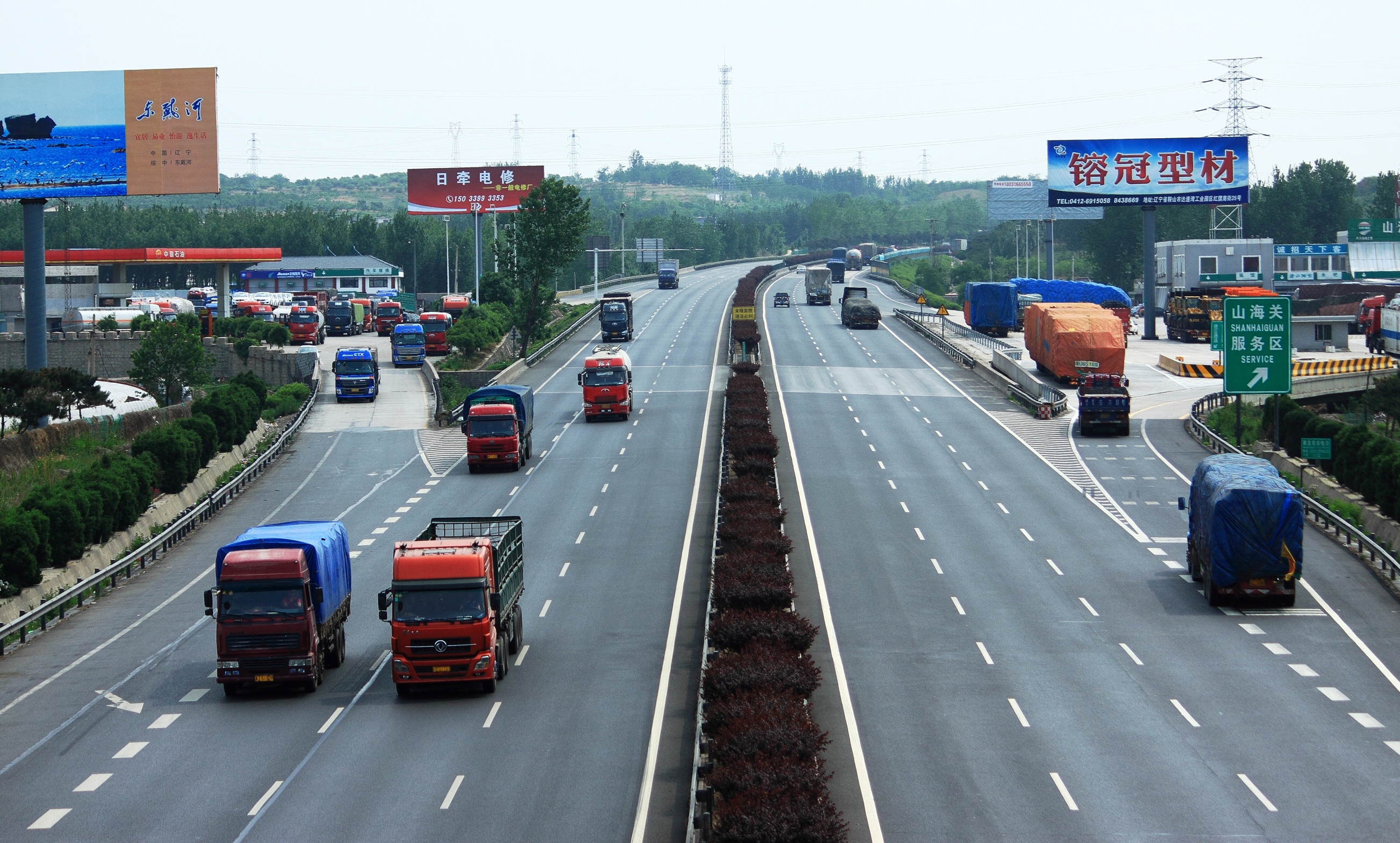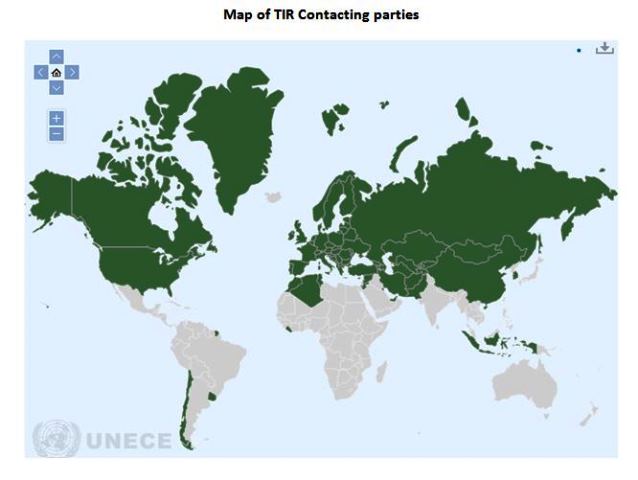 China has taken a key step towards the development of international economic corridors with its regional trading partners and the rest of the world with the accession to the United Nations TIR Convention.
China has taken a key step towards the development of international economic corridors with its regional trading partners and the rest of the world with the accession to the United Nations TIR Convention. The Secretary-General of the United Nations, acting in his capacity as depositary, informed that the Government of the People's Republic of China deposited its instruments of accession to the TIR Convention, 1975, on 5 July 2016, bringing the number of Contracting Parties to the TIR Convention to 70 on the 5 continents. The Convention will enter into force for China on 5 January 2017.
EU-China trade reached EUR 520 bn in 2015, and some 60% transited by sea, according to Eurostat estimates, while rail and road accounted for some 10% of China’s exports to the EU, and 3.2% of the EU’s exports to China.
“China’s accession to the TIR Convention will open new efficient and faster transport opportunities and transport routes between China and Europe. It can become a real game changer for international trade and is a strong contribution to the Chinese vision for “One Road One Belt”. We warmly welcome China to the TIR Convention and look forward to working closely with China and all TIR contracting partners to turn this decision into strong opportunities for trade, transport and economic growth,” said UNECE Executive Secretary Christian Friis Bach.
“I’m delighted to welcome China into the TIR family of nations. This is an important step in harmonising standards and boosting transport, trade and development across the Eurasian landmass. IRU has been a strong supporter of China’s Belt and Road Initiative, and we will continue working closely with the Chinese government and business community as we turn our attention now to implementing the TIR system,” said Umberto de Pretto, IRU Secretary General.
The TIR transit system is the only global intermodal customs transit system, constituting a major facilitation tool for both transport and trade. Over 35,000 road transport operators worldwide are already authorised to use the TIR system effecting around 1.5 million TIR border crossing procedures per year.
The accession of China will further foster the opportunities for economic growth and development of China and transit countries, facilitate trade with Central Asian countries, Mongolia and the European Union, as well as stimulate China's transit and logistics services. China’s neighbours on its northern and western borders are already Contracting Parties to the TIR Convention, including Kazakhstan, Kyrgyzstan, Mongolia, the Russian Federation and Tajikistan. The application of the TIR system will provide China the opportunity to shift its export goods under a single, simplified transit procedure to EU countries for all modes of transport. More than 1,200 Chinese road transport companies ship freight across China’s land borders, conducting more than 700,000 transit operations per year.
UNECE, which hosts the secretariat of the TIR Convention, and the International Road Transport Union (IRU) are working closely with the government of China to enable the country to become TIR operational in the nearest future.
China’s accession should open new opportunities for China’s southern neighbours to consider acceding to TIR.
In parallel, China is actively studying acceding to other United Nations Conventions serviced by UNECE, including CMR (Contract for the International Carriage of Goods by Road) and the International Convention on the Harmonization of Frontier Controls of Goods, 1982, as well as ADR (European Agreement concerning the International Carriage of Dangerous Goods by Road).
About TIR
TIR is the only universal customs transit system for moving goods across international borders. Supporting trade and development for more than 60 years, TIR is governed by the United Nations TIR Convention, overseen by UNECE. TIR stands for “Transports Internationaux Routiers”.
About UNECE
The United Nations Economic Commission for Europe was set up in 1947 and is one of five regional commissions of the UN. UNECE facilitates economic integration and cooperation among its member countries and promotes sustainable development and economic prosperity.
UNECE’s Euro-Asian Transport Links Phase II report, released in 2013, identified 9 rail and 9 road routes between Europe and Asia that could provide a time and cost effective alternative to sea fare provided the appropriate infrastructure is in place. These routes stretch eastward from Central and Eastern Europe all the way to Russian ports on East Sea, Chinese ports on Eastern China Sea, and southward toward Iran and Pakistan and their ports in the Persian Gulf and Indian Ocean. The routes will crisscross the land mass between Europe and Asia, thus connecting regions and countries that have so far suffered from lack of access to seaports and good transport connections to their neighbours.
China’s ‘One Belt, One Road’ initiative, aimed at improving the connectivity between China and Europe along the ancient Silk Road as well as by sea, will require massive investments in infrastructure. This will considerably improve infrastructure in both China and in neighbouring countries. Public-Private Partnerships (PPPs) are expected to play a key role in mobilizing the resources needed for these investments. In order to facilitate the efficient use of PPPs for the ‘One Belt, One Road’ initiative. In January 2016, UNECE and China’s National Development and Reform Commission (NDRC) signed a Memorandum of Understanding to establish an international PPP Centre of Excellence that will be in charge of developing international best practices in PPP in the field of Transport Logistics. The first training programme on PPPs under this cooperation took place in May 2016 in Quingdao.
IRU is the world’s road transport organization, promoting economic growth, prosperity and safety through the sustainable mobility of people and goods. Founded in 1948, IRU has members and activities in more than 100 countries. IRU manages the TIR system under UNECE’s mandate.


